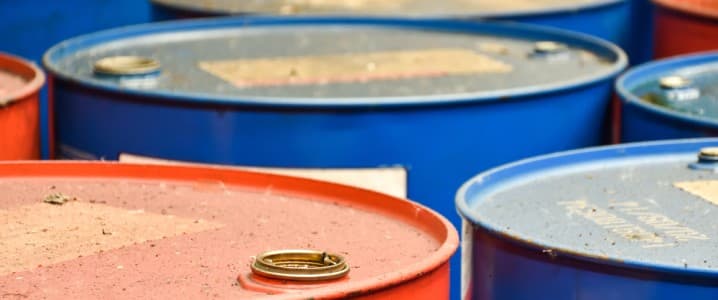The European Union lowered the price cap on Russian crude oil to $47.60 from $60 per barrel as it adopted on Friday the 18th sanctions package against Russia, targeting a hundred more ‘shadow fleet’ tankers, energy trade, and traders and banks enabling it.
Following weeks of negotiations and Slovakia holding up the required unanimous approval of the sanctions package, the EU finally agreed on the fresh sanctions after Slovakia lifted its veto. Slovakia had tied dropping its veto with receiving sufficient energy security guarantees after January 1, 2028, when the EU plans to have dropped all Russian gas supply.
Slovakia continues to receive Russian gas via a pipeline through Balkans and has a supply agreement with Gazprom until 2034.
The new sanctions seek to curtail Russia’s energy revenues, with the lower price cap “to align it with current global oil prices,” the EU said.
The price cap mechanism set by the G7 and the EU says that Russian crude shipments to third countries can use Western insurance and financing if cargoes are sold at or below the $60-a-barrel ceiling.
The U.S. hasn’t joined the lower EU price cap, so it’s uncertain if the lower cap would have effect on Russia’s oil trade.
The EU is also introducing an automatic and dynamic mechanism to modify the oil price cap and ensure that this price cap is effective, the EU said.
The EU is also imposing a full transaction ban on the gas pipelines Nord Stream 1 and 2, including for the provision of goods or services, thus preventing the completion, maintenance, operation, and any future use of the Nord Stream 1 and 2 pipelines.
The bloc also targets additional 105 ‘shadow fleet’ vessels, which will be subject to a port access ban and a ban on the provision of a broad range of services related to maritime transport, bringing the total number of blacklisted vessels to 444.
The EU expanded sanctions on entities doing business with Russian oil, including via asset freezes, travel bans, bans on providing resources. The bloc targets Russian and international companies managing shadow fleet vessels, traders of Russian crude oil, and a major customer of the shadow fleet – a refinery in India with Rosneft as its main shareholder.
The EU is now banning the import of refined petroleum products made from Russian crude oil and coming from any third country – with the exception of Canada, Norway, Switzerland, the United Kingdom, and the United States – thereby preventing Russia’s crude oil from reaching the EU market through the back door.
“We will keep raising the costs, so stopping the aggression becomes the only path forward for Moscow,” said Kaja Kallas, the EU’s High Representative for Foreign Affairs and Security Policy.
By Michael Kern for Oilprice.com
More Top Reads From Oilprice.com:

